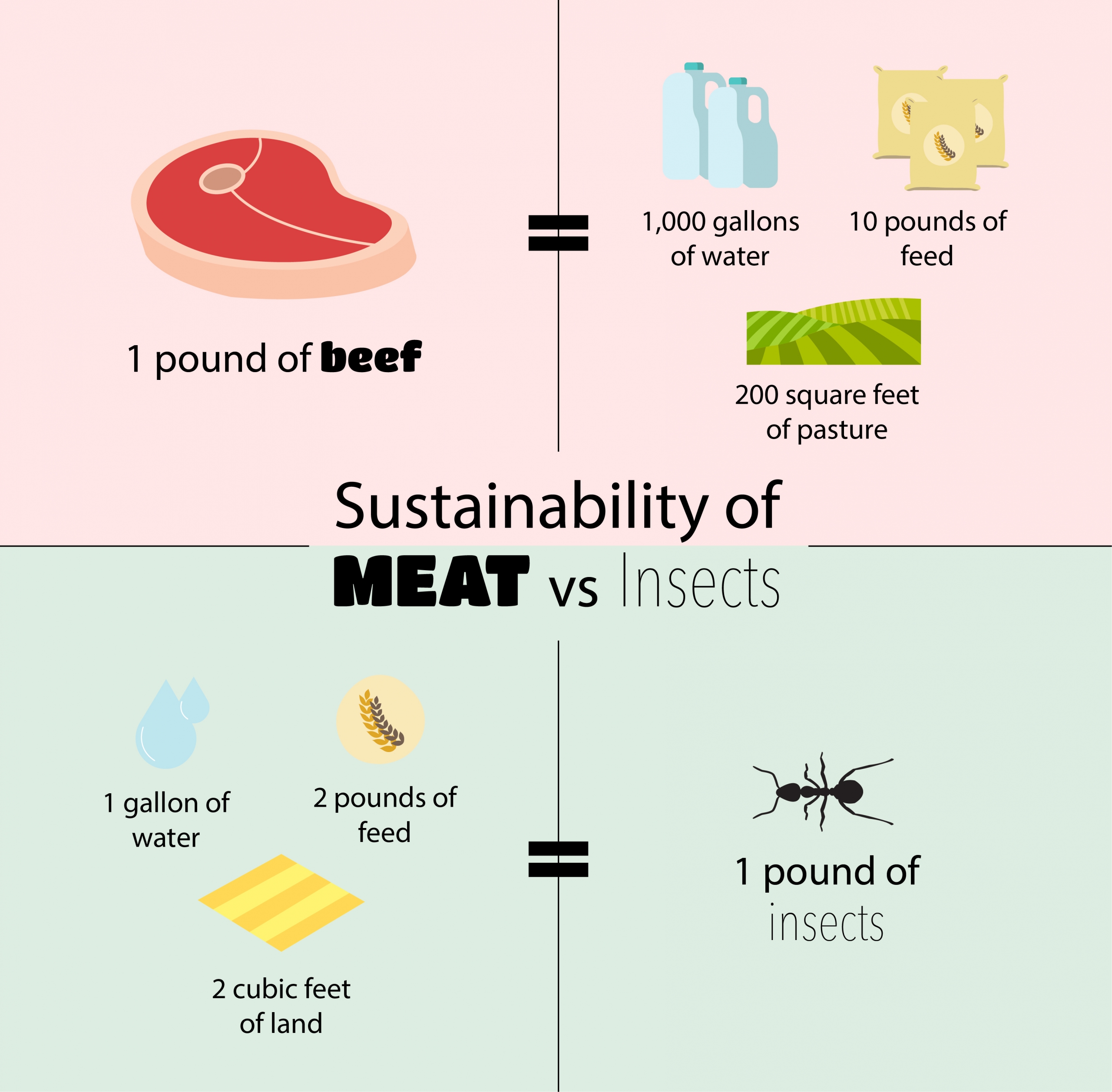Three reasons scientists believe bugs are the next beef
 Shaunice Wall is NCL’s Linda Golodner Food Safety and Nutrition Fellow
Shaunice Wall is NCL’s Linda Golodner Food Safety and Nutrition Fellow
There’s a thin line between hunger and disgust when deep-fried tarantulas and smoked barbeque crickets are on the menu. Many scientists argue that animal protein is not environmentally sustainable, so alternatives–like bugs–may be the answer to the perils of global warming. Recent research supports eating bugs as a way to maintain a protein-rich diet while benefiting the environment.

Why bugs are slowly crawling into our everyday diets
As the world population continues to grow, so will demand for animal protein. By 2050, we’ll be eating more than two-thirds the animal protein we do today, causing a strain to our planet’s resources. The surge in demand for animal protein has also contributed to an increase in greenhouse gases (carbon dioxide, methane and nitrous oxide). These gases lead to extreme weather conditions, ozone depletion, increased danger of wildland fires, loss of biodiversity, stresses to food-producing systems and the global spread of infectious diseases. Even today, climate changes are estimated to cause over 150,000 deaths annually.
Most westerners prefer beef over bugs
While many of us westerners may gag at the thought of maggots in our sausage, more than 2 billion people throughout the world have been eating bugs as a regular part of their diets for millennia. But historically, for westerners, livestock not only yields meat, but also milk and milk products, their hides or skins provide warmth, they are suitable for plough traction, and act as a means of transport. Because of the use of these animals, the benefits of eating insects in many societies has failed to gain much interest. Also, certain insects are transmitters of disease and are virtually a nuisance.
So, why should we eat bugs?
In 2013, a report by the Food and Agriculture Organization (FAO) of the United Nations, urged global citizens to eat more bugs for three reasons:
- They’re healthier for you…and tasty too!
- Bugs are a healthy, nutritious alternative to mainstream staples such as chicken, pork, beef, and fish (from ocean catch).
- Many insects are rich in protein, good fats, and high in calcium, iron, and zinc.
- Insects already form a traditional part of many regional and national diets.
- Bugs can be used as an ingredient substitute for almost any recipe. Here’s a link with ideas on how to make some delicious bug treats!
- They’re safer for the environment
- Bugs promoted as food emit 75 percent fewer greenhouse gases (GHGs) than most livestock.
- Insect rearing is not necessarily a land-based activity and does not require as much land as livestock.
- Because they are cold-blooded, insects are efficient at converting feed into protein (crickets, for example, need 12 times less feed than cattle, four times less feed than sheep, and half as much feed as pigs and broiler chickens to produce the same amount of protein).
- According to the Harvard Political Review, producing one pound of beef requires 10 pounds of feed, 1,000 gallons of water, and 200 square feet of pasture. In contrast, producing one pound of insects only requires two pounds of feed, one gallon of water, and two cubic feet of land space.
- They’re lower in cost
- Bug harvesting/rearing is a low-tech, low-capital investment option that offers economic opportunities to all levels of society.
- Insect rearing can be low-tech or very sophisticated, depending on the level of investment.
Recent advances in research and development show edible bugs to be a promising alternative to meat for both human consumption and as feedstock. But to make this a reality, regulatory frameworks for safety and nutrition will need to be developed and government, industry, and academia will need to work together.
In the meanwhile, knowing the benefits can help turn disgust to hunger when tarantulas or crickets appear on the menu… Something to think about!












